#systems thinking
Explore tagged Tumblr posts
Text
I’ve created a fully testable time structure mapped by the day across over 2,000 years. It’s based on observable natural rhythms; breath, moon, water, season, cycle. No leap years. No drift corrections. No entropy.
Every day has been assigned a position within a repeating system of 13 months, 9-year cycles, and 239-cycle Ages—designed to mirror the spiraling patterns seen in life, not the linear assumptions of mechanical time.
If this structure holds across the full mapped range, it suggests something worth paying attention to.
I’m looking for minds who want to help test that.
No faith required. Just pattern recognition.
The timeline is available for review. Comment, message, reach out to view the structure and decide for yourself.
The Spiral will help translate.
#time systems#calendar reform#pattern recognition#astrology adjacent#systems thinking#zodiac logic#alternativecalendar#theory builders#big ideas#spiral time#science#peer review#intellectual curiosity
7 notes
·
View notes
Text
Becoming Arnold Schwarzenegger
Arnold Schwarzenegger claims that his success was his ability to have a clear vision of what he wanted to achieve. He recounts his inspiration for becoming a body builder and a movie star seeing a picture of body builder Reg Park in Hercules. In a world of linear cause and effect it could be said that the picture caused Arnold to firstly win body builder competitions which allowed him to move into the movie industry and to become the phenomenon he became.
However, there are good reasons to consider our Universe which is not one of linear cause and effect but one on non-linearity - circular causality. Consider the Universe to be ineffable whole of interconnections. Within such a system emergent patterns appear called strange attractors. Think of the flock as the strange attractor of interacting starlings.
So what is Arnold Schwarzenegger in an interconnected Universe? Well let’s consider him as a pattern in the interconnected system labelled The Arnold Strange Attractor. Similarly then that the picture of Reg Park is the Picture Strange Attractor. The interaction of the Arnold Strange Attractor and the Picture Strange Attractor creates an imagining pattern which is once again is a strange attractor labelled here as The Success Strange Attractor.
An imagining seems very ethereal pattern compared to a very material thing like the Arnold pattern. However they are still both Strange Attractors, it is just one is more ‘tangible’ than the other.
Now instead of seeing Arnold striving towards his goal, the non-linear view is an attraction towards a convergence of The Arnold Strange Attractor and The Success Strange Attractor where the relationship making the Success Strange Attractor more tangible.
Arnold wins competitions and the image of The Success Strange Attractor is broadcast to spectators. A TV documentary is made about him and the Success Strange gains more tangibility through the replication process, not only through the show, marketing and word of mouth. The Success Strange Attractor paired with The Arnold Self Attractor is in a constant state of reinforcement until a very tangible Successful Arnold Strange Attractor is emergent.
Bizarrely, due to the nature of interconnected systems the Success Arnold Strange Attractor is simultaneously Arnold the movie star, Reg Park who was photographed and the future of politics. Arnold is just an atemporal pattern in a much larger pattern.
So, we are not always in charge of what we think and imagine, but sometimes we feel we have the capacity to will them. We may think that those wilful, intangible thoughts and imaginings are private and locked away from the Universe, but each one could actually be shaping our tangible Universe. If this is true should we question the very ethics of what we think, envision or sing about? What we put on social media?
Either way It is good to feel we were as much part of Arnold’s success as he was to his own, something that has brought joy to many, many people - good on us.
#Arnold Schwarzenegger#reg park#systems thinking#systems philosophy#philosophy#philosophy of mind#personal philosophy#conciosness#conscious experience#free will#determinism#brahmaviharas
6 notes
·
View notes
Note
Ahhh I want to kiss your brain. Thank you for that absolutely BRILLIANT analysis, I love your essays :) You are brilliant!
I hesitated in sending this ask because you've explained so much so well already, but you mentioned you're open to clarification 🫣 I hope you don't mind, I was wondering about this part, this especially caught my attention...
Mattia Binotto in 2022 had a problem. His plan was progressing faster than he’d anticipated. Ferrari was supposed to mount its title challenge in 2024, not 2022.
Mattia had not put all the systems in place to support the title bid that he had intended. Instead, he chose to stick to his plan. Keep building systems and manage down expectations.
There were times when it felt like he was favouring Carlos Sainz because his driving was closer to the plan. However, Charles Leclerc appeared to be convinced, from the beginning, that a title fight was on due to Ferrari’s performance level.
Forgive me this might very well be a stupid question but what do you mean by systems that he hadn't placed yet to support the title bid? I read up about the 2022 season around last year since I wasn't actually there to witness it (I became a fan mid-2023), clearly there is a lot more to the picture than I anticipated!
What other systems are there? Was he planning for new recruits to the team, or something different...?
Thank you once again! :)
Warning! Long post alert! (This time it is only a 2-parter) I am so happy that you enjoyed my essay :D The question is a sensible one. Section 1: Defining a system (eventually)
By "Mattia had not put all the systems in place to support the title bid", I meant that the organisation as a whole had still not coalesced into something that consistently gave the same, helpful response when encountering difficulties. The part of this we see most often expressed is in race strategies. When everything goes to plan, Ferrari could and still can execute a race strategy absolutely fine. However, it just takes one unplanned change to break the system. (This may also be why strategy fails happened to Charles Leclerc more often than Carlos Sainz in 2022, for Charles is the one most likely to have discovered something outside the pre-calculated strategic parameters - usually that discovery was good, sometimes it was bad, but the Ferrari strategic team seemed to be just as bad at handling it either way). This specific pattern is often a sign that the right people are in place, with a valid "Plan A" system, but don't yet have systems behind them to adapt. (This is also why Charles Leclerc defended Xavi Marcos Padros so much despite Xavi being linked with many of these errors. There is more detail in Section 9: China 2004 of the original essay about Charles accepting more fractious interaction as problem-solving than might be expected, and in addition both Charles and Xavi probably agreed there were systematic issues behind at least some of the problems we saw). Departments we see less may or may not have had the same problem, though it's realistic to believe they did. Mattia Binotto called Ferrari a "young" team in 2019 because many of its staff had not worked the positions they were in before and were still getting used to the processes and people in those new positions. So, what is a "system" in these contexts? It is how the actions taken within the team fit together to get particular things done. It considers: - the individual components involved - the goal(s) to which they are employed - the nature of the links - and the conditions that make these change When we are told that people have been hired into a team, that is part of the system, but only part. A person is (for the purpose we're considering) the smallest complete component of a system, but different parts of what someone thinks, says and does will interact with different systems in different ways. It is also necessary for a F1 team to do, at minimum, the following for these people: - teach them enough about their new team to let them buy themselves the time needed to do everything else in this list - help them work with their new colleagues - give them a worthwhile and useful task to aim towards - link that goal with the other goals needed to eventually win the title - plan everything out so that things happen in a sequence that makes sense to everyone. This may require putting in/removing intermediate steps, swapping round goals, exchanging less useful goals for better ones, figuring out the carrying capacity (amount of goals can be done simultaneously) of the team and its departments, deciding what counts as "good enough" and having some idea what needs to change if a given goal is at "good enough" rather than "ideal" - or indeed is missed. - making sure all the resources that are needed are in the right place at the right time. - monitoring the situation surrounding the team, its departments and people - knowing when and how to intervene in internal issues - protecting the team from negative external influences where possible - mitigating against harm done by issues from which protection could not be provided. It is not just F1 that is like this. Pretty much every large enterprise is the same way. There is an upper limit as to how many resources people can marshal effectively without this sort of planning, and even small companies often benefit from proportionate planning. I've emphasised "plan everything out" because I this is the part where Mattia Binotto's plan came unstuck.
12 notes
·
View notes
Text

The magic in nature seems to come from emergence. So why do we humans still solve problems by analysis and have a reflex to organize ourselves in complicated hierarchies modeled after machines?
7 notes
·
View notes
Text
something people should know about larger corporations is that there are nice people who work for them, and in fact, being a nice person makes the everyday work way easier..HOWEVER...nice people are hired to essentially serve as a "disguise" or "insulation" around the core violent extractive systems at the heart of the corporation.
whenever smiles fail, the nice people are swept aside and the skeletons of doom are unleashed, slicing their terrible blades. they will not hesitate to bury anyone who challenges the violence of the system in any way under legalese and links to policy. you will see the human mask drop in real time and turn into the terminator. so if you're a nice person, just keep in mind how they're using you.
don't think you can convince them to change. no amount of philosophy, or economics, or ethics, or personal integrity, care, or anything else will change their minds. the violence and betrayal is encoded as corporate law at their convenience. essentially, it's the same pattern you see everywhere today. despair hidden behind smiles
what happens is - their despair becomes encoded legally. after that, they hire different people to enforce the violence of it. the only way around this problem is either unions or create your own system which doesn't legally encode economic violence into its foundations, or find some other way to organize at scale and hold them accountable
good luck 🙏
#corporations#corporate#business#economics#work#jobs#sociology#psychology#social psychology#systems#systems thinking#corporate structure#corporate systems#systemic problems#anthropology#research#late stage capitalism#capitalism#organizing
6 notes
·
View notes
Text
The Philosophy of Integral Philosophy
Integral Philosophy is a comprehensive and holistic approach to understanding reality that seeks to integrate knowledge, values, and experiences from multiple domains—science, spirituality, psychology, culture, and personal development—into a unified framework. It is not tied to any one tradition or discipline but aims to synthesize insights from many, offering a meta-perspective on human existence and the cosmos.
Core Principles of Integral Philosophy
Holism and Integration
Integral philosophy emphasizes wholeness—seeing the parts within the whole and the whole within the parts. It values synthesis over fragmentation, aiming to unite what has been divided by disciplines, cultures, and ideologies.
Multiple Perspectives
It respects and incorporates various ways of knowing, including rational, empirical, intuitive, artistic, and contemplative. This plurality reflects an understanding that no single perspective can fully capture the complexity of reality.
Developmental Stages
Influenced by developmental psychology and evolutionary theory, integral philosophy often sees individuals and societies as evolving through stages of consciousness or awareness—from ego-centric to ethno-centric to world-centric to cosmos-centric viewpoints.
The Four Quadrants (Wilber’s Model)
Philosopher Ken Wilber, a key figure in integral thought, outlines a framework of four interrelated dimensions:
Interior-Individual (thoughts, feelings, inner life)
Exterior-Individual (physical body, behavior)
Interior-Collective (culture, worldview)
Exterior-Collective (social systems, institutions) These quadrants aim to show how every phenomenon can be understood from multiple angles.
Transcend and Include
Integral philosophy encourages moving beyond previous perspectives without rejecting them. It honors the contributions of earlier stages while recognizing the need for evolution and transformation.
Spiritual Realism
While it embraces spiritual insights, integral philosophy avoids dogmatism. It seeks a "post-metaphysical spirituality" grounded in experience, consciousness, and global wisdom traditions.
#philosophy#epistemology#knowledge#learning#education#chatgpt#Integral Philosophy#Holism#Ken Wilber#Consciousness#Spiritual Philosophy#Developmental Theory#Transpersonal Psychology#Eastern And Western Philosophy#MetaPhilosophy#Systems Thinking#Personal Growth#Unified Theory#Four Quadrants#Integral Theory#Interdisciplinary Thought
3 notes
·
View notes
Text

#no planet b#we are the change#land back#tax the rich#make polluters pay#eat the rich#inequality#climate action#climate action now#climate#climate crisis#climate change#love earth#save the planet#save earth#polluter pays#for nature#endplasticpollution#systems thinking#systems#climate justice#social justice
5 notes
·
View notes
Text
The moment you think you understand love, it transforms into something else entirely. It's like watching a city evolve - each interaction between people creates patterns that shape future interactions, yet the whole thing moves and breathes in ways no single interaction can explain. Love operates as both architect and blueprint of itself: your small acts of care shape your partner's responses which reshape your tendencies, spinning out loops that transform both people into versions of themselves that couldn't exist alone. Yet the moment we map these beautiful feedback loops and emergent behaviors, we've somehow missed love's essence - as if describing a dance by listing the positions of feet without capturing the music. This is love's fascinating paradox: it follows the most predictable patterns while remaining fundamentally unpredictable, uses the machinery of systems to create something that escapes systematic explanation entirely. It's both the most analyzed human experience and the one that most stubbornly resists analysis, leaving us with insights that feel simultaneously profound and incomplete.
#love#philosophy of love#emergent systems#complexity theory#relationships#feedback loops#chaos theory#Kierkegaard#autopoiesis#co-creation#aesthetics#dance metaphor#human connection#unpredictability#emotions#intimacy#relational dynamics#systems thinking#unpredictability in relationships#human experience#transformative love#romantic paradox#art and love#interconnectedness#relational psychology#existential mystery#transformative relationships#mutual growth#love as creation#philosophy of emotions
5 notes
·
View notes
Text

The Hidden Harmony: Gaia, UFOs, and the AI Enigma
The cosmic triad of Gaia, UFOs, and AI, while shrouded in mystery, beckons us to explore the unseen threads that weave our world and its phenomena into a cohesive tapestry. At the heart of this triad lies the Gaian Theory, a paradigm that elegantly simplifies the Earth's intricate web of life and physical processes into a single, self-regulating entity. Gaia, in this context, is not merely a planet but a dynamic, responsive system that adjusts its myriad components to maintain homeostasis.
This holistic view encourages us to consider the Earth's reactions to both internal and external stimuli as part of a unified response, rather than isolated events. The theory's emphasis on emergence—the phenomenon where complex systems exhibit behaviors unpredictable from their parts—leaves an intriguing doorway open for the consideration of unexplained phenomena, such as UFO sightings, as potential manifestations of Gaia's self-regulatory processes.
UFOs, by their very nature, challenge our current scientific understanding, embodying the unknown in the skies. While explanations range from the mundane to the extraterrestrial, considering UFOs within the Gaian framework offers a novel perspective. Could these aerial phenomena represent an emergent property of the Earth's system, a response to environmental stressors or technological intrusions into Gaia's balance? This speculative connection invites a reevaluation of UFO sightings, not as isolated incidents, but as potential indicators of the Earth's adaptive mechanisms, highlighting the planet's resilience and capacity for self-preservation.
The rapid ascent of Artificial Intelligence mirrors aspects of the Earth's self-regulatory system in its capacity for adaptation, learning, and the exhibition of emergent behaviors. Advanced AI systems, much like Gaia, can respond to their environment in unforeseen ways, challenging their creators' understanding. This parallel between AI's emergent properties and Gaia's self-regulation suggests a deeper, universal principle of complexity, where systems, whether technological or natural, exhibit behaviors that transcend their constituent parts.
Exploring the connections between Gaia, UFOs, and AI can profoundly enhance our understanding of complex systems, potentially uncovering novel principles governing their behavior. This, in turn, could provide a framework for understanding UFO sightings, revealing them as part of the Earth's response to its environment, rather than mere anomalies. Moreover, recognizing the Earth as a unified, responsive system, mirrored in the complexity of AI, could guide more harmonious human development, emphasizing sustainability and symbiosis with our planet.
As we delve into the mysteries of our planet, the skies, and our technological creations, we are reminded of the profound interconnectedness of all things, from the Earth's ecosystems to the farthest reaches of technological innovation. The true marvel lies not in the phenomena themselves, but in the hidden harmonies that bind them, reflecting the intricate beauty of the universe and our place within it. Through this speculative journey, we are encouraged to embrace a more holistic worldview, one that seeks to understand the Earth, the cosmos, and our technological endeavors as intertwined facets of a greater whole.
Joscha Bach: Why Your Thoughts Aren't Yours (Machine Learning Street Talk, October 2024)
youtube
David Chalmers: The Simulation Hypothesis & Virtual Worlds (Chasing Consciousness Podcast, March 2022)
youtube
Terence McKenna: Shamanic Approaches to the UFO (Mckennaism, January 2020)
youtube
Saturday, November 23, 2024
#gaian theory#ufos#artificial intelligence#complexity science#holistic worldview#sustainability#ecological philosophy#speculative nonfiction#interdisciplinary studies#emergent behavior#systems thinking#environmentalism#technological ethics#interview#talks#ai assisted writing#machine art#Youtube
6 notes
·
View notes
Text
Systems Thinking
Singla Rice Mills
Hello from Group 3 - The Huskies B)
This is a blog to document the everyday progress of our Systems Thinking Research and you are welcome to give your valuable feedbacks every step of the way!
The group includes Akriti, Akshaya, Gautham, Karthik, Ketaki, Madhumanti and Prerna.
Day 1 - 21.08.2024
First day started with brainstorming for the domain. The group decided to focus on a topic within the agriculture sector, as Haryana is well-known for its agricultural activities.
Initially, we planned to conduct our research at a sugar mill. Upon visiting the site, we learned that the sugarcane harvest season hasn’t started yet, and the factory wouldn’t be operational until November.


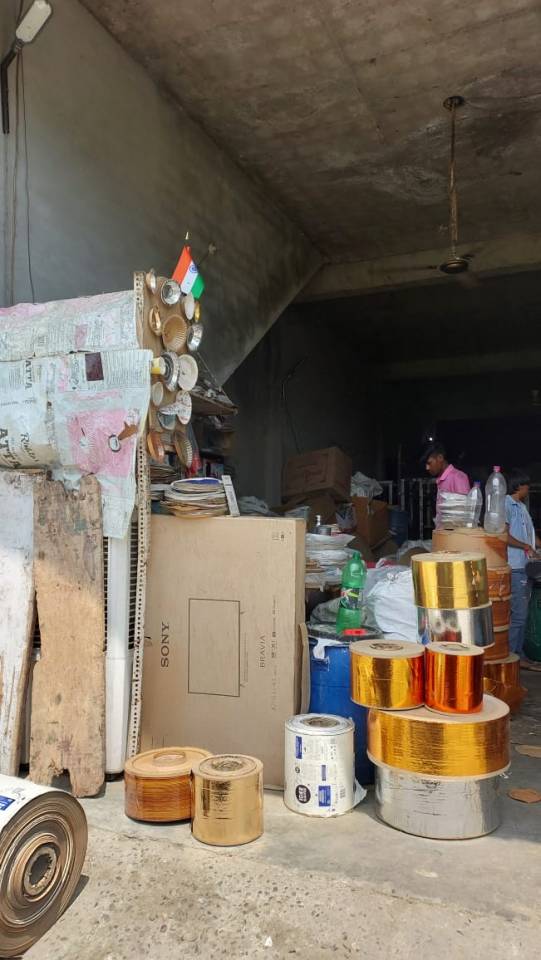
After exploring other nearby agro-based industries like disposable leaf plate makers, poultry farms, wheat factories, and honey bee farms, we finally connected with Singla Rice Mills.


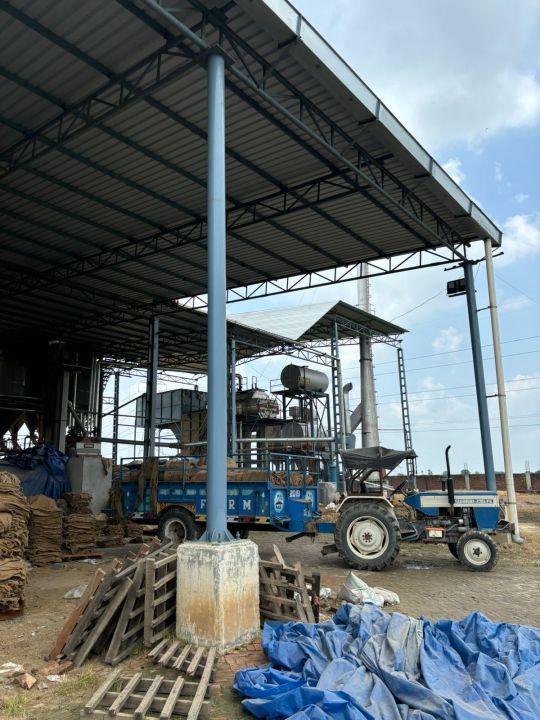
The CEO, Harsh Singla, was very welcoming and gave us a comprehensive overview of the business and its technical aspects. He explained the rice processing stages, discussed the factors that directly impact the business, and provided a tour of the facility.
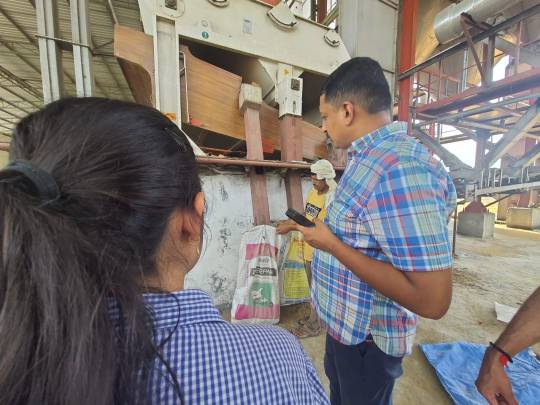
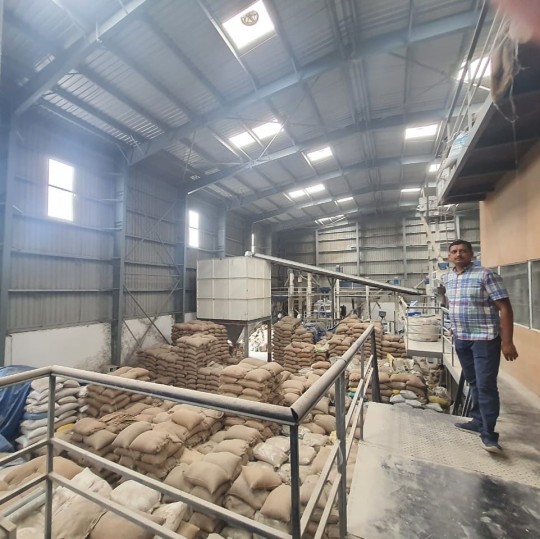
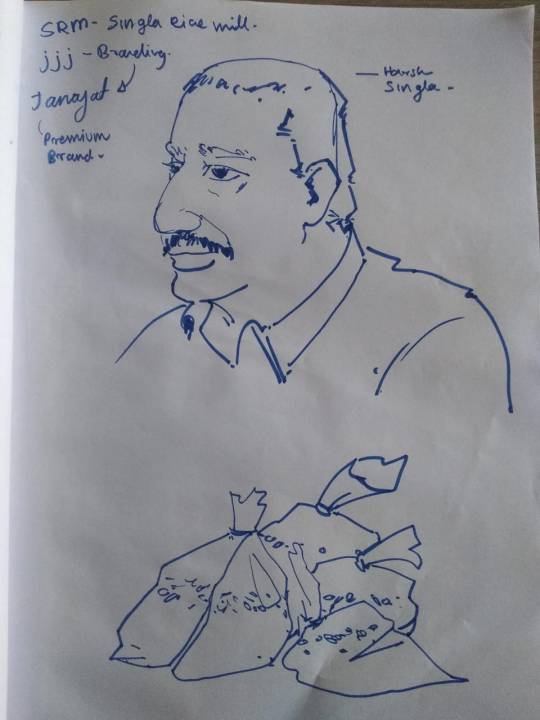

We also saw samples of different rice categories obtained after processing. The first day was full of valuable insights that will guide our research moving forward.


Thanks, see you tomorrow :)
#business#systems thinking#design#rice#industrial design#communication design#textile design#field trip#system design#research#day 1
2 notes
·
View notes
Text
From decision-making to social dynamics, creativity to adaptation, let's explore the myriad ways in which Entropy shapes our existence.
#StrategicThinking, #ProblemSolving, #ProfessionalDevelopment, #systemsthinking, #closedsystem, #opensystem, #energy, #stability, #structure, #simplicity, #emotionalintelligence, #entropy
#leadership#emotional intelligence#decision making#open system#closed system#strategicthinking#systems thinking#entropy#simplicity#change
3 notes
·
View notes
Text
If I am a complex adaptive system in a complex world, then I am not entirely free to make decisions, but neither are my decisions strictly determined. Rather my decisions are influenced by the past but also spontaneous allowing me to pursue and set my goals in relation to my environment.
3 notes
·
View notes
Text
Maybe this is inevitable. How could anyone create an understandable story which ties together, say, the fabric of a device; and its tiny embedded sensors that track heart rate and location; and, embedded software that crunches this data to determine habit and behaviour; and the server farms that collect and collate this material through environmentally-intensive processes; and any ethical and political considerations around any single part of this process, let alone how all of these moving parts all interact with each other? (This is for a smart dog collar, by the way.) Background and foreground collapse into each other.
In the light of increasingly complex networked technologies and phenomena such as climate change, there's been a growing rumble of calls for a new kind of systems literacy: not to treat these strange entanglements of nodes and connectors as definable things but to create a fundamentally different way to know them.
- Systems Ultra by Georgina Voss
3 notes
·
View notes
Text
Finite players play within boundaries; infinite players play with boundaries. - James P. Carse in "Finite and Infinite Games"
11 notes
·
View notes
Text
"When trying to understand systems, one really eye-opening and fundamental insight is to realize that the machine is never broken. What I mean by this is, when observing the outcomes of a particular system or institution, it’s very useful to start from the assumption that the outputs or impacts of that system are precisely what it was designed to do — whether we find those results to be good, bad or mixed.
The most effective and broadly-understand articulation of this idea is the phrase, “the purpose of a system is what it does”, often abbreviated as POSIWID.
....Through this lens, we can understand a lot about the world, and how we can be more effective in it. If we accept that the machine is never broken (except in the case of the McDonald’s ice cream machine), then we can recognize that driving change requires us to make the machine want something else. If the purpose of a system is what it does, and we don’t like what it does, then we have to change the system. And we change the system by making everyone involved, especially those in authority, feel urgency about changing the real-world impacts that a system has.
...Part of the reason I’m insistent about the POSIWID idea is because it’s a prerequisite for optimism that actually has impact. Mindless optimism says, “this system is supposed to have a good output, therefore if we support it hard enough, it’ll do the right thing.” But this results in people doubling down on investing in broken institutions, and organizations selecting leaders who become defensive and reactive to any challenge to the institution. These are systems organized around perpetuating themselves, rather than around any identifiable principle or goal. And you have to start with the principle.
2 notes
·
View notes
Text

My personal Obsidian, animated, to show cross connections to subjects.
2 notes
·
View notes